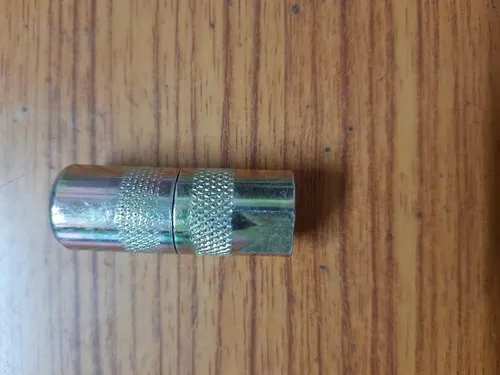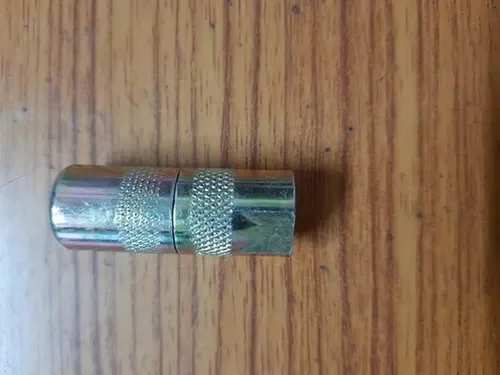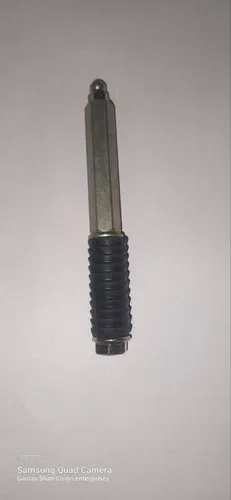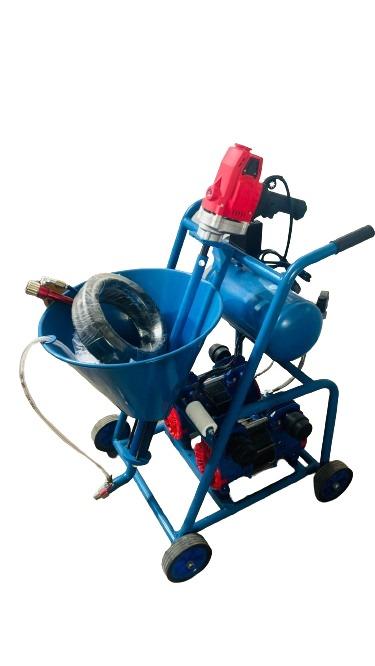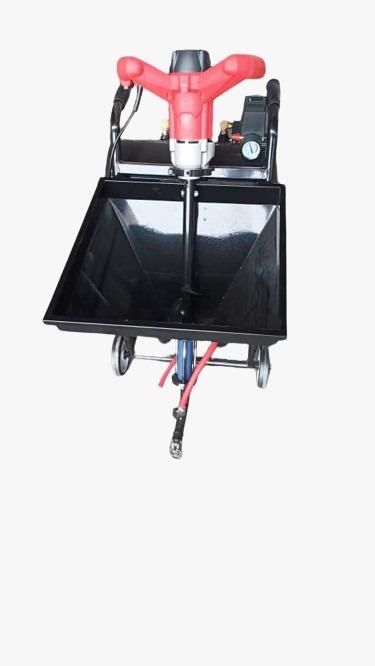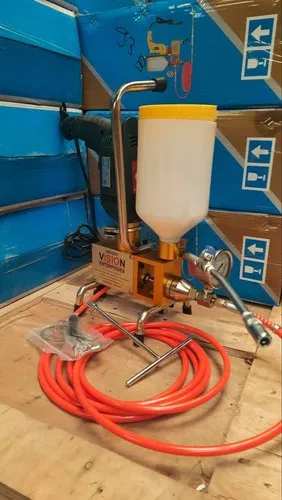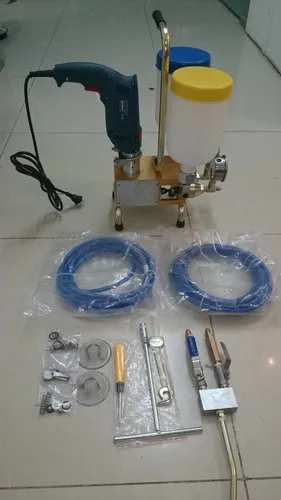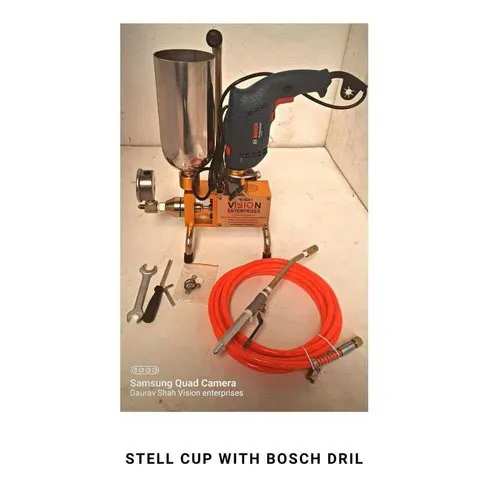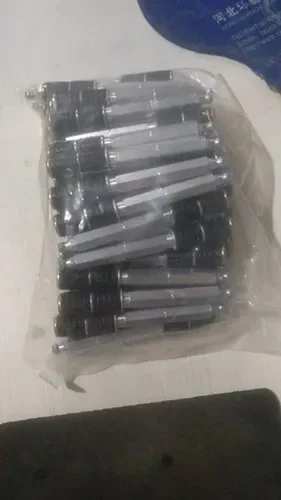Material: Stainless Steel Brand: Vision Enterprises Packaging Type: Box Surface Finishing: Polished Shape: Round Here's information about injection grouting nozzles: What they are: Specialized components used in injection grouting procedures. Attached to the end of grouting hoses or pipes. Direct the flow of grout into specific areas, ensuring precise placement and penetration. Types: Single-port: Single opening for grout flow. Multi-port: Multiple openings for broader diffusion or targeting different zones. Fan-shaped: Distribute grout in a fan-shaped pattern for wider coverage. Jet: High-velocity nozzles for penetrating dense materials. Materials: Metal: Stainless steel or brass for durability and resistance to corrosion. Plastic: ABS or PVC for lighter weight and chemical compatibility. Key features: Threaded connections: Secure attachment to grouting hoses or pipes. Pressure ratings: To withstand expected injection pressures. Variable orifice sizes: To control grout flow rate and distribution pattern. Applications: Crack repair: Filling cracks in concrete structures to restore strength and prevent water ingress. Foundation stabilization: Strengthening weak foundations by injecting grout into the surrounding soil. Leakage sealing: Stopping leaks in pipes, tunnels, and other structures. Void filling: Filling voids in soil or concrete to improve stability and prevent settlement. Rock bolting: Securing rock anchors in place for slope stabilization or tunnel support.

